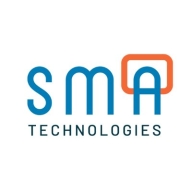

We performed a comparison between AutoSys Workload Automation and OpCon based on our users’ reviews in five categories. After reading all of the collected data, you can find our conclusion below.
Features: AutoSys Workload Automation is highly regarded for its ability to handle large workloads, its user-friendly interface, efficient performance, and constant availability. It excels in organizing tasks and initiating them, providing a live view of batch processing, and seamlessly integrating with other software processes. OpCon shines in its adaptability, innovative scheduling solutions, self-service capabilities, and automation-driven reduction in human mistakes. It offers a visually appealing interface, database functionality, and the option to create a dedicated testing environment.
AutoSys needs to enhance its integration with cloud services, reporting capabilities, Linux environment compatibility, migration ease, file transfer job handling, monitoring capabilities, advanced features, workflow management, and workload window management. OpCon could benefit from improvements in its web-based interface, upgrade process, documentation, programming and configuration complexity, mobile app availability, failover functionality, licensing, training for support staff, UI functionality, self-service capabilities, custom job subtypes, and mainframe support.
Service and Support: AutoSys Workload Automation's customer service is highly praised for being very good, helpful, and responsive. OpCon's customer service is described as great, timely, and helpful. However, there have been instances where OpCon provided solutions that were not relevant to customers' problems.
Ease of Deployment: The setup process for AutoSys Workload Automation is simple, direct, and fairly fast, typically completed in under 10 minutes. OpCon's initial setup can be intricate, although SMA consultants can help simplify its management.
Pricing: AutoSys Workload Automation has a setup cost that involves a yearly subscription and an annual license, along with separate costs for agents and server setup. OpCon offers fair pricing and licensing with a tiered pricing model. However, some customers have faced higher licensing costs and encountered setup issues with OpCon.
ROI: AutoSys offers advantages such as time and cost savings, improved reliability, scalability, and compliance. OpCon users have reported significant return on investment, including time savings, error reduction, increased productivity, and the elimination of full-time operators.
Comparison Results: AutoSys Workload Automation is the preferred choice when compared to OpCon. Users praise AutoSys for its simple and straightforward setup, scalability, user-friendly interface, speed, and availability. They appreciate features such as file transfer protocol and file watcher.
| Product | Market Share (%) |
|---|---|
| AutoSys Workload Automation | 9.4% |
| OpCon | 1.8% |
| Other | 88.8% |


| Company Size | Count |
|---|---|
| Small Business | 13 |
| Midsize Enterprise | 5 |
| Large Enterprise | 77 |
| Company Size | Count |
|---|---|
| Small Business | 16 |
| Midsize Enterprise | 29 |
| Large Enterprise | 19 |
AutoSys Workload Automation efficiently manages complex workloads across platforms, offering high availability and seamless platform integration. Its reliability and scalability are valued for enterprise-level automation, enhancing job management and reducing manual effort with robust scheduling and advanced security.
AutoSys Workload Automation is known for its user-friendly capabilities, effectively handling cross-platform job scheduling with mainframe integration. It supports high availability, ensuring reliable performance for critical operations. Despite enhancements needed in its GUI and integration capabilities, AutoSys remains effective for batch processing, file transfers, ETL, and managing dependencies across servers and applications. Improvements are suggested for deployment complexity and monitoring features. More effective licensing and scalability solutions, along with modern subscription models and cloud integration, could address cost and automation barriers.
What are AutoSys Workload Automation's key features?In industries like banking, insurance, and retail, AutoSys Workload Automation facilitates 24/7 automated job execution, ensuring smooth task automation. It allows companies to manage enterprise workloads effectively, catering to batch processing, file transfers, and handling job dependencies in a consistent manner.
OpCon enhances automation with features like auto-scheduling and Corelation KeyStone integration, empowering users with self-service capabilities. Its intuitive interface and flexibility boost productivity, providing reliable automation and efficient file transfers.
OpCon is a powerful automation platform known for streamlining operations through features like auto-scheduling and robust integration capabilities. It facilitates seamless automation, allowing users to execute tasks without direct environment access and simplifies job dependencies. Users benefit from self-service capabilities, which enable easy task execution by non-IT staff, reducing errors and human intervention. With its modern interface, OpCon supports efficient file transfers and integrates effectively with multiple systems, enhancing productivity. While offering significant scalability, OpCon users suggest improvements in web functionality, script-writing, and graphical displays, along with enhancements in user authorization and notification systems. There is also a need for better template management, clearer logging, improved mobile accessibility, and expanded training resources.
What are OpCon's Key Features?OpCon is widely used in industries like financial services, where automation and scheduling tasks are critical. Financial institutions rely on OpCon for core processing tasks, including reporting, automated workflows, and vendor file exchanges. The platform handles high volumes of jobs across platforms, ensuring efficient operations and reducing reliance on manual processes.
We monitor all Workload Automation reviews to prevent fraudulent reviews and keep review quality high. We do not post reviews by company employees or direct competitors. We validate each review for authenticity via cross-reference with LinkedIn, and personal follow-up with the reviewer when necessary.